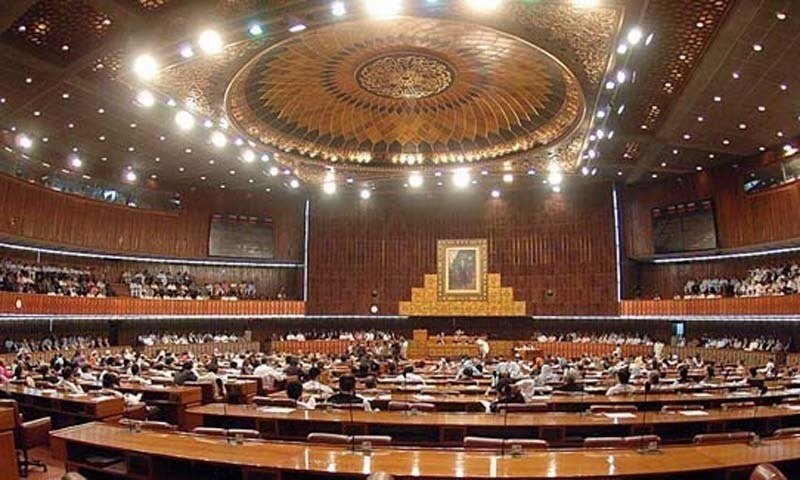In a key development reflecting Pakistan’s ongoing energy sector reforms, the National Assembly’s Standing Committee on Petroleum has recommended the Off the Grid (Captive Power Plants) Levy Bill, 2025 for passage. This bill is a major part of the country’s commitment to energy sector restructuring under the International Monetary Fund (IMF) Extended Fund Facility.
Chaired by Syed Mustafa Mehmood, the committee met in Islamabad on Thursday with broad participation from lawmakers and senior officials across ministries. At the meeting’s outset, members confirmed the minutes of the previous session and offered Fatiha for the victims of the Khuzdar suicide bombing, reaffirming national solidarity in the wake of ongoing security challenges.
The committee extended a warm welcome to the Federal Minister for Petroleum and appreciated the presence of key stakeholders. Commending Pakistan’s Armed Forces for their professionalism in managing recent tensions with India, the chairman expressed full support and acknowledged the military’s crucial role in protecting the nation.
Captive Power Levy Bill Explained
The Federal Minister for Petroleum gave a detailed briefing on the Captive Power Plants Levy Bill, 2025, presenting it as a critical reform measure aimed at phasing out isolated captive power generation in favor of integration with the national grid. He stated that this transition is crucial for optimizing surplus electricity production, improving overall grid efficiency, and reducing the fiscal burden caused by inefficiencies in the energy sector.
The shift away from captive power systems, long discussed but never implemented due to political and economic hurdles, is now back on the agenda as Pakistan seeks to streamline its energy usage and reduce circular debt. According to the minister, the bill is the product of an extensive consultative process involving industry stakeholders, with the active support of the Speaker of the National Assembly.
To ensure smooth implementation, the bill incorporates safeguards to prevent industrial disruption, especially for small and medium enterprises (SMEs), and guarantees fair electricity pricing through national supply. The Power Division’s transition plan will soon be shared with the committee for review.
Postponement of Petroleum (Amendment) Bill
While endorsing the Captive Power Levy Bill, the committee chose to defer further discussion on the Petroleum (Amendment) Bill, 2025. The decision was taken to allow more time for review and to enable a deeper analysis of its implications, ensuring that future recommendations are well-informed and inclusive.
National Energy Priorities and Circular Debt
Committee members were informed that both the Power and Petroleum Divisions are now working in close coordination to support a smooth energy transition. A Circular Debt Management Unit has been established under the Prime Minister’s directive to tackle the spiraling circular debt problem, especially in the petroleum sector. The committee will hold in-camera briefings in upcoming sessions to evaluate sensitive aspects of this agenda.
During the meeting, lawmakers raised multiple issues requiring urgent attention, including:
- Reliability concerns with K-Electric’s service in Sindh
- Energy challenges faced by SMEs across the country
- Future regulatory clarity for captive power systems
- Transparent procedures for gas meter conversions used in industrial processing
These concerns, members argued, must be addressed holistically within the broader energy reform framework to ensure sustainable outcomes.
Broad Political Representation
The meeting drew attendance from prominent National Assembly members such as Sardar Ghulam Abbas, Anwarul Haq Chaudhary, Malik Saiful Malook Khokhar, Mian Khan Bugti, Haji Jamal Shah Kakar, Syed Naveed Qamar, Asad Alam Niazi, Muhammad Moin Aamer Pirzada, and Gul Asghar Khan. Also present were top government functionaries, including Momin Agha, Secretary of the Petroleum Division; Masroor Khan, Chairman of the Oil and Gas Regulatory Authority (OGRA); and Jam Muhammad Aslam from the Ministry of Law and Justice, among others.
Looking Ahead
The endorsement of the Off the Grid Levy Bill signals Pakistan’s seriousness in restructuring its power sector under IMF guidance. However, the success of this legislative effort hinges on the government’s ability to ensure an equitable, transparent, and well-planned transition that supports industries, strengthens the national grid, and reduces reliance on outdated energy practices.
By addressing circular debt, inefficiencies in electricity usage, and disconnected power generation, the proposed reforms could potentially stabilize Pakistan’s struggling energy sector and provide long-term relief to both the economy and consumers. However, much will depend on how inclusively these reforms are implemented and how effectively the government can communicate their benefits to stakeholders.















